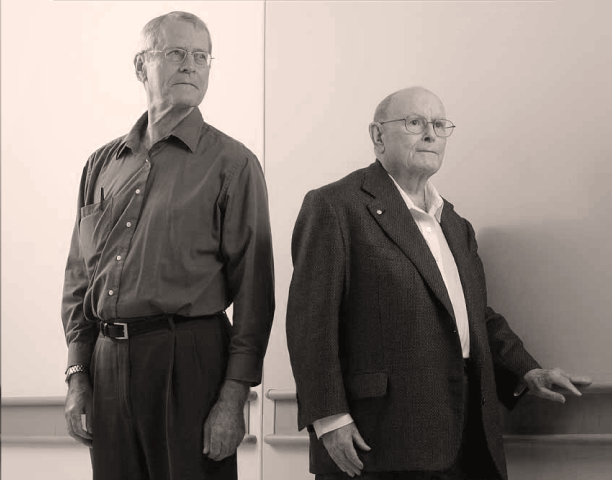Stem Cell Timeline
Explore the History of Stem Cells
(Text 13,14)

"Stem Cell" Only Scientific Fiction
1868
The term "stem cell" emerges in scientific literature, describing a zygote and describing the organism that acted as the ancestor cell to all living things.
(Image 15)


Alexander Maximow
1909
Russian academic, Alexander Maximow, theorizes at the Berlin Hematological Society that all blood cells come from the same ancestor cell, illustrating the idea that blood stem cells are multipotent.
(Image 16)
Leroy Stevens
1953
Maine scientist, Leroy Stevens, discovers pluripotent cells while researching cancer cells and tumors in mice.
(Image 17)


Ernest McCulloch & James Till
1957
Canadian scientists, Ernest McCulloch and James Till discover the first pieces of evidence of blood stem cells while performing experiments on the bone marrow of mice.
(Image 18)
Martin Evans & Gail Martin
1981
Two scientists, Martin Evans from the University of Cambridge and Gail Martin from the University of California, derive pluripotent cells from the embryos of mice, the first embryonic stem cells to be isolated.
(Image 19)


Dominique Bonnet & John Dick
1997
Canadians Dominique Bonnet and John Dick discover that leukemia comes from the same stem cells that constitute our blood cells, proving that cancer grows from abnormal stem cells.
(Image 20)
University of Wisconsin
1998
A University of Wisconsin team creates the first batch of human embryonic stem cells, which they acquired from early embryos. Being pluripotent, the team discovers the potential of the cells in drug discovery and transplantation medicine.
(Image 21)


George W. Bush supports Stem Cell Research
2001
President George W. Bush signs an order supporting the use of federal funds for research on human embryonic stem cells.
(Image 22)
Shinya Yamanaka & Kazutoshi Takahashi
2006
Japanese scientists Shinya Yamanaka and Kazutoshi Takahashi announce the discovery of rodent induced pluripotent cells.
(Image 23)


Boston Children's Hospital Stem Cell Disease Treatment
2008
The Stem Cell Program at Boston Children's Hospital announces the creation of 10 disease-specific lines of iPS cells, helping scientists find innovative ways to understand, prevent and treat different diseases.
(Image 24,25)



